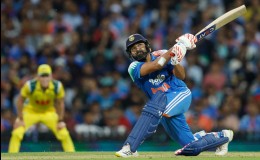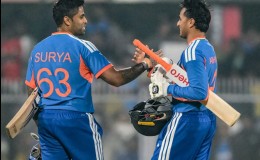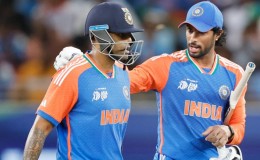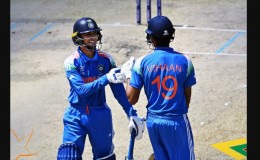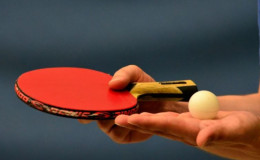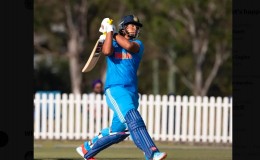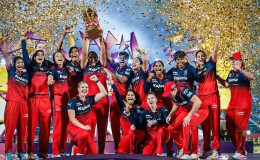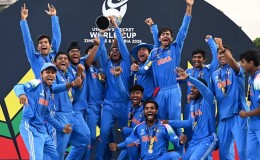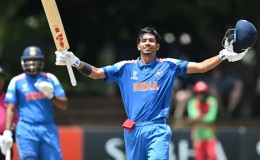 By Jim McCabe
By Jim McCabe
As natural ideas go, playing the Genesis Scottish Open the week before the Open Championship is so seamless one wonders how it ever took so long to match it up like that.
Then again, there was probably a time when peanut butter and jelly sandwiches didn’t exist.
But today’s world-class players will not concern themselves with what happened in bygone eras; instead, they cherish the fact that creative minds saw the benefit of playing the Scottish Open on links the week before the Open Championship.
“This is a massive event when you think about it,” said American Billy Horschel. “When you look at what’s on that wall (a rollcall of former winners of the Genesis Scottish Open) and you appreciate the fact that it’s now co-sanctioned by the PGA TOUR and DP World Tour, this is what we play for.
“We want to compete against the best players and see where we stand with our games and what better place than to do it here at the Renaissance Club,” said Horschel.
Should you wonder if Horschel is piling on the hyberbole, a check of the entry list for this year’s July 13-16 gathering at the Renaissance Club in North Berwick confirms that he is not.
At least eight of the world’s top 10 players, including Nos. 1-2-3 (Scottie Scheffler, Jon Rahm, Rory McIlroy) are committed and the headliners don’t stop there. That’s because Patrick Cantlay, Jordan Spieth, Justin Thomas, Rickie Fowler, and defending champion, Xander Schauffele have signed on. So, too, international favorites such as Viktor Hovland (Scotland), Shane Lowry (Ireland), Adam Scott (Australia) and Robert MacIntyre, the popular Scotsman who’ll be in front of countrymen.
Wyndham Clark, the surprising winner of the recent U.S. Open, will tee it up, as will a pair of Englishmen who also won that major – Matt Fitzpatrick (2022) and Justin Rose (2013).
Horschel, winner of seven PGA TOUR tournaments and the DP World Tour’s flagship event, the BMW PGA Championship, said the depth of field matters. “We want to be known as players who won the same tournament as Tiger Woods, the same as Arnold Palmer, and that we won National Opens.”
While the Scottish Open might not be as old as the Open Championship or the other majors, it has been staged for more than 50 years and being tied to a country that is considered to be the “Home of Golf” speaks volumes for its richness.
For more than 20 years, the Scottish Open was played at a world-class parkland golf course – Loch Lomond – but there are three reasons why it has morphed into a must-play event.
One, it is one of five tournaments in the DP World Tour’s Rolex Series. Two, the Scottish Open is now sponsored by Genesis and it is co-sanctioned by the PGA TOUR and DP World Tour. But most important to players is Reason No. 3 – the ability to play a true links the week before the Open Championship and to make travel so much easier to the following week’s venue (for this year it will be Royal Liverpool in Hoylake, England).
When championship organisers moved the Scottish Open to a links in 2011, players talked passionately about the value of getting their “ground game” in good form and it resonated loudly when Phil Mickelson in 2013 did something he never had come close to doing – he won the Claret Jug, at Muirfield, no less. The fact that he won the Scottish Open one week earlier at Castle Stuart was duly noted by just about everyone in golf circles.
Young Australian Min Woo Lee did not repeat Mickelson’s feat in 2021, but his stunning win at the Renaissance Club did more than establish him as an elite talent on the rise. It also provided the momentum to finish T-21 at the Open Championship one week later and to string together a series of top 10s at the end of 2022 that thrust Lee inside the world’s top 50.
“That Scottish Open win was huge,” he said. “It meant a lot to my career and when I go back there and see my face up on the billboards with so many big names, it definitely makes an impression on me.”
What pushed Brandon Stone into global prominence was his win in the 2018 Scottish Open. It ignited stories of a glorious run for his fellow South Africans in 2000-05 when Ernie Els won twice and both Retief Goosen and Tim Clark claimed victories in the Scottish Open.
For sure, the world’s greatest golf championships have one thing in common – they attract a global field and produce international winners. In between Americans wins by Fowler in 2015 and Schauffele in 2022, there were six Scottish Open champions from six different countries – Alex Noren (Sweden), Rafa Cabrera-Bello (Spain), Stone (South Africa), Bernd Wiesberger (Austria), Aaron Rai (Scotland), and Lee (Australia) – and that overflows with rich flavor.
“These two weeks are massive for my game and my career,” said one of Scotland’s elite young talents, Robert MacIntyre. “It’s great for everyone and pushes everything forward.”
This will be the fifth straight year that the Renaissance Club has hosted the Genesis Scottish Open and the fact that playoffs have been required on three occasions and only one stroke separated Schauffele and runner-up Kurt Kitayama last year offers testimony to the quality of the golf course.
When he won the Scottish Open in 2015, Fowler gushed about his accomplishment. “Winning on a links golf course in the Home of Golf, Scotland, it is a special week,” he said.
Having recently returned to the winner’s circle for the first time since 2019, Fowler is in great form and his rabid group of fans will be out in force. But you could say that about a dozen or so names in the field, a true testament to the quality of this year’s Genesis Scottish Open.


